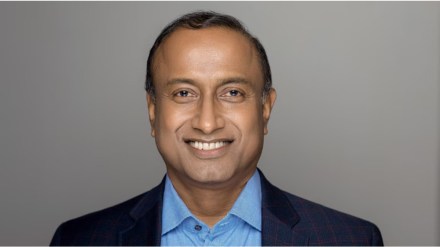IT industry body Nasscom will be launching the US CEO Forum at the Consulate General of India in New York today (July 9). It will bring together leading Indian tech CEOs and influential US stakeholders to drive high-level strategic dialogue across innovation, enterprise, policy, and talent development. Nasscom president Rajesh Nambiar spoke to Sudhir Chowdhary on the key objectives of the Forum and how it will deepen India-US tech and innovation partnership. Excerpts:
How will the US CEO Forum enhance India-US tech partnership?
Technology collaboration, especially today, has become a cornerstone of modern bilateral engagement, shaping innovation strategies and driving economic outcomes. India and the United States share one of the most vital and forward-looking tech partnerships globally and Nasscom has played a key role in advancing this relationship.
The launch of the US CEO Forum deepens the collaboration. Designed as a sustained leadership platform, the Forum brings together, CEOs, stakeholders from government, industry, investment, academia, and the Indian diaspora to strengthen the India-US tech corridor. It supports the broader ambition of advancing trade and innovation ties. This further aligns with the $500 billion bilateral trade goal outlined by Prime Minister Narendra Modi and President Donald Trump and highlights the Indian tech sector’s critical role in achieving it.
Will it help position Indian tech as a vital contributor to America’s growth story?
India and the US share a natural synergy in advancing frontier technologies such as AI, semiconductors, clean tech, and cybersecurity. The Forum’s core priority is to elevate the India-US technology corridor as a strategic engine for inclusive growth, innovation, and resilience. It aims to build a deeper, bipartisan understanding of the Indian tech industry’s critical role in advancing America’s digital competitiveness, by powering innovation across sectors, creating high-value jobs, investing in local ecosystems, and strengthening supply chains.
From Fortune 500 partnerships to emerging innovation hubs, Indian firms are already deeply embedded in the US economy. The Forum will help accelerate the Indian tech companies’ contribution more meaningfully to shared goals around digital transformation, economic development, and workforce readiness. This includes amplifying their role in job creation across key US states, enabling skilling and STEM education initiatives, and strengthening local communities through impactful CSR programmes.
At the same time, the Forum will serve as a platform to address challenges that can hinder industry progress, be it around ease of doing business, talent mobility, or cross-border regulatory frameworks. It will work to shape a policy environment that supports frictionless collaboration while reinforcing India’s role as a trusted innovation partner.
What role do you see startups and small enterprises playing alongside major corporations in strengthening the innovation ecosystem?
Startups and smaller enterprises are not merely auxiliary players in the global innovation ecosystem, they are often the origin points of disruption, agility, and frontier thinking. Unlike large corporations, which tend to optimise scale and operational efficiency, smaller firms are structurally inclined to take risks, experiment with emerging technologies, and pursue unconventional market opportunities. In a cross-border context, this entrepreneurial dynamism becomes even more valuable, offering fresh innovation pathways.
What steps are being taken to ensure responsible and inclusive implementation of AI?
The adoption of AI is entering a more mature and operationally complex phase. What began as experimentation with predictive models has evolved into large-scale integration of generative and now agentic systems that can act with a degree of autonomy. This evolution is driving a shift in business models while increasing the demand for highly customised, sector-specific solutions. There is a growing recognition that governance must evolve alongside capability. The Nasscom Developer’s Playbook for Responsible AI, launched as a collaborative effort across India’s AI ecosystem, reflects this understanding. It provides a foundational risk management framework for developers and enterprises seeking to build responsibly from the outset. Looking ahead, as agentic AI systems become more prevalent, our focus is shifting toward establishing globally benchmarked, context-sensitive guardrails.
What is your outlook for the tech industry over the next five years?
As technologies like AI, quantum computing, and digital infrastructure mature, their full potential will be realised only through deeper collaboration across borders. India and the US are uniquely positioned to lead this shift. India brings scale, talent, and a thriving innovation ecosystem. The US offers cutting-edge research, capital, and market depth. Together, they can shape a shared digital future. Whether it is co-developing AI frameworks, advancing quantum research, or enabling next-generation public infrastructure, the partnership steered by the US CEO Forum will be central to defining how technology serves economies and societies at large.
While we await the final announcements post the 90-days Tariff pause, overall, all CIO surveys and research states that there is no cutback on technology spending. Once policy clarity emerges, many of these decisions are expected to resume, especially as enterprises reorient their strategies to optimize efficiency and innovation.
